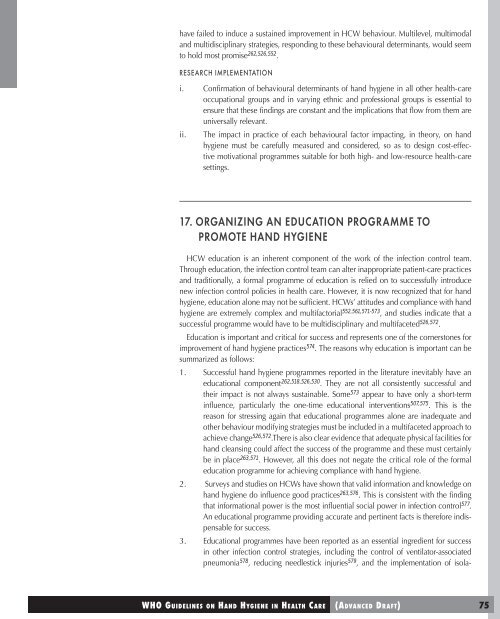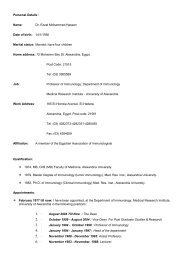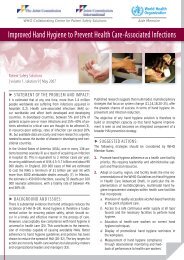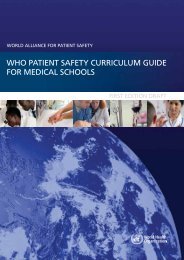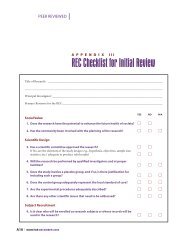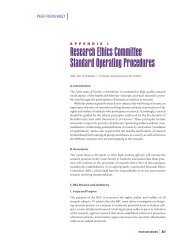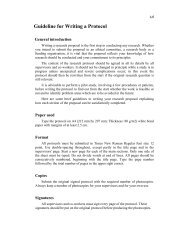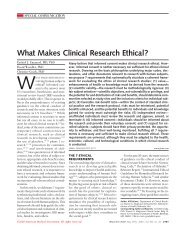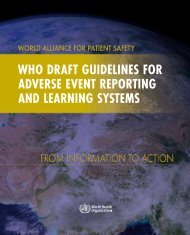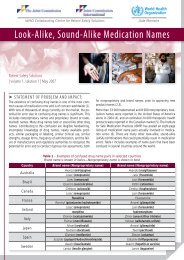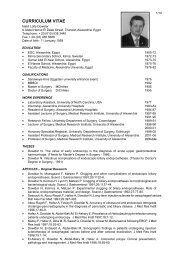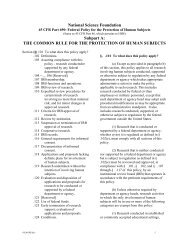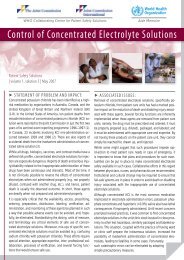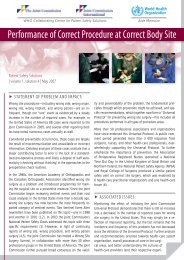Hand hygiene.pdf
Hand hygiene.pdf
Hand hygiene.pdf
You also want an ePaper? Increase the reach of your titles
YUMPU automatically turns print PDFs into web optimized ePapers that Google loves.
have failed to induce a sustained improvement in HCW behaviour. Multilevel, multimodal<br />
and multidisciplinary strategies, responding to these behavioural determinants, would seem<br />
to hold most promise 262,526,552 .<br />
<br />
HCW education is an inherent component of the work of the infection control team.<br />
Through education, the infection control team can alter inappropriate patient-care practices<br />
and traditionally, a formal programme of education is relied on to successfully introduce<br />
new infection control policies in health care. However, it is now recognized that for hand<br />
<strong>hygiene</strong>, education alone may not be sufficient. HCWs’ attitudes and compliance with hand<br />
<strong>hygiene</strong> are extremely complex and multifactorial 552,561,571-573 , and studies indicate that a<br />
successful programme would have to be multidisciplinary and multifaceted 526,572 .<br />
Education is important and critical for success and represents one of the cornerstones for<br />
improvement of hand <strong>hygiene</strong> practices 574 . The reasons why education is important can be<br />
summarized as follows:<br />
1. Successful hand <strong>hygiene</strong> programmes reported in the literature inevitably have an<br />
educational component 262,518,526,530 . They are not all consistently successful and<br />
their impact is not always sustainable. Some 573 appear to have only a short-term<br />
influence, particularly the one-time educational interventions 507,575 . This is the<br />
reason for stressing again that educational programmes alone are inadequate and<br />
other behaviour modifying strategies must be included in a multifaceted approach to<br />
achieve change 526,572 .There is also clear evidence that adequate physical facilities for<br />
hand cleansing could affect the success of the programme and these must certainly<br />
be in place 263,571 . However, all this does not negate the critical role of the formal<br />
education programme for achieving compliance with hand <strong>hygiene</strong>.<br />
2. Surveys and studies on HCWs have shown that valid information and knowledge on<br />
hand <strong>hygiene</strong> do influence good practices 263,576 . This is consistent with the finding<br />
that informational power is the most influential social power in infection control 577 .<br />
An educational programme providing accurate and pertinent facts is therefore indispensable<br />
for success.<br />
3. Educational programmes have been reported as an essential ingredient for success<br />
in other infection control strategies, including the control of ventilator-associated<br />
pneumonia 578 , reducing needlestick injuries 579 , and the implementation of isolai.<br />
ii.<br />
Confirmation of behavioural determinants of hand <strong>hygiene</strong> in all other health-care<br />
occupational groups and in varying ethnic and professional groups is essential to<br />
ensure that these findings are constant and the implications that flow from them are<br />
universally relevant.<br />
The impact in practice of each behavioural factor impacting, in theory, on hand<br />
<strong>hygiene</strong> must be carefully measured and considered, so as to design cost-effective<br />
motivational programmes suitable for both high- and low-resource health-care<br />
settings.<br />
17. ORGANIZING AN EDUCATION PROGRAMME TO<br />
PROMOTE HAND HYGIENE


